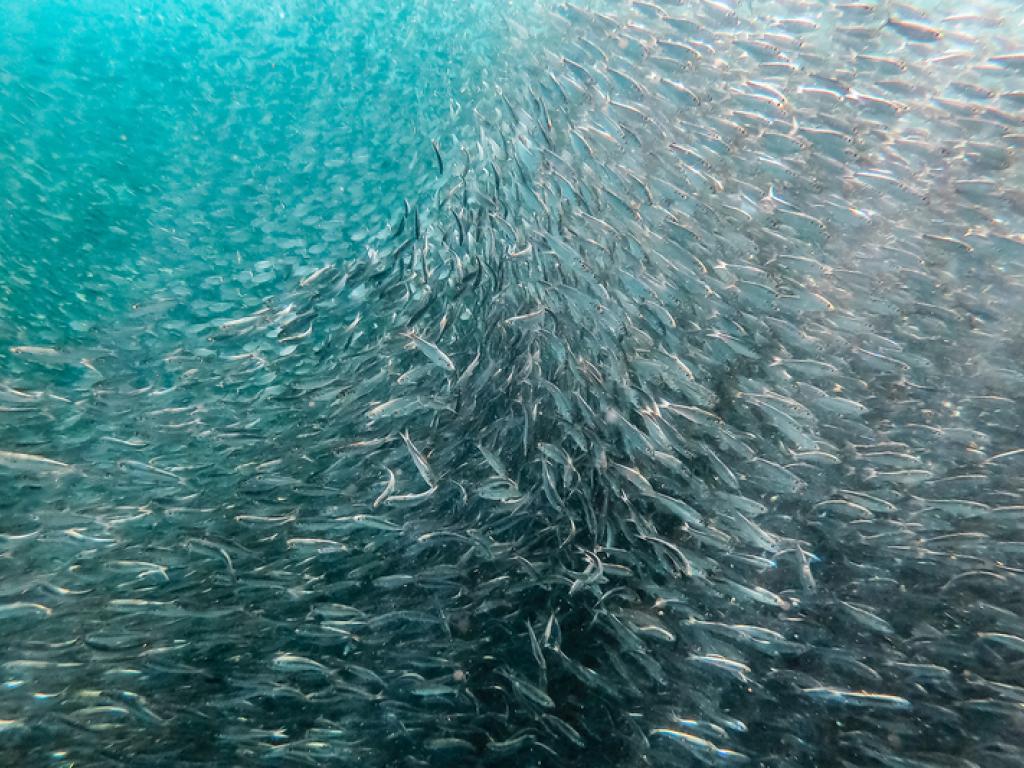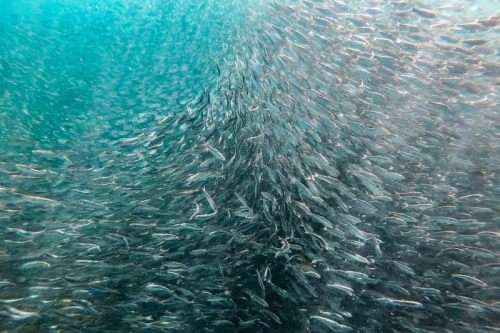Ocean’s potential to bolster food security


Research shows that the ocean is ideally positioned to contribute to food security due to the highly nutritious nature of seafood.
With better management and innovation, the ocean could provide over six times more food than it does today and more than two-thirds of the animal protein needed to feed the global population of the future. This is according to a new paper by an international group of researchers including Dr Carryn de Moor, a senior research officer from the University of Cape Town’s (UCT) Department of Mathematics and Applied Mathematics and the Marine Resource Assessment and Management (MARAM) Group.
‘The Future of Food from the Sea’ Blue Paper, launched on 19 November 2019 at the United Nations Food and Agriculture Organization’s International Symposium on Fisheries Sustainability in Rome, Italy, examines the current status and future potential of food production from the ocean.
This is the first of a series of 16 Blue Papers that summarise the latest science and state-of-the-art thinking about innovative ocean solutions. It will inform the work and final recommendations of the High Level Panel for a Sustainable Ocean Economy in 2020, a group of 14 heads of government from around the globe who have committed to developing, catalysing and supporting solutions for ocean health and development.
The ocean has great, untapped potential to help feed the world in the coming decades.
“All the Blue Papers will contribute to a suite of bold but pragmatic recommendations that will serve as a roadmap for aligning robust economic development while protecting the vital natural capital of the ocean,” says de Moor.
“Although I was the only African collaborator in this Blue Paper, I’m pleased that three African Heads of State, the presidents of Namibia, Ghana and Kenya, are part of the High Level Panel for a Sustainable Ocean Economy.”
Marine aquaculture: a key to unlocking productivity
According to de Moor, the paper identifies the main barriers to increasing food production from the ocean, including environmental, economic and regulatory issues. It also proposes a realistic set of actions to overcome them and provides a framework that leaders and scientists can use to inform policy decision-making and implementation, according to their regional or local contexts.
The research shows that the ocean is ideally positioned to contribute to food security due to the highly nutritious nature of seafood, which contains essential vitamins, minerals, long-chain omega-3 fatty acids and other nutrients not found in plant-based or terrestrial-animal proteins.
“We have found that with reform, wild or ‘capture’ fisheries could catch as much as 20% more fish compared to now, and up to 40% more fish than they are projected to catch in future if current business-as-usual fishing pressures continue unchanged,” de Moor says.
The paper singles out overfishing as a major threat to more productive fisheries.
This is driven by a combination of factors, including illegal fishing, capacity-enhancing subsidies for fisheries, a lack of alternative livelihoods, a lack of incentives to protect the underlying resource, poor local and institutional governance, and less-than-optimal management of fisheries resources. Other important threats include climate change, environmental variability, habitat degradation and pollution.
“We have found that with reform, wild or ‘capture’ fisheries could catch as much as 20% more fish compared to now.”
Yet, the largest potential gains for food production lie in the sustainable expansion of marine aquaculture, also known as mariculture.
Accelerating the production of mariculture species that do not rely on feeding, such as seaweed and mussels, could contribute multiple benefits. These extend beyond food to improving water quality, creating habitat for wild fish and contributing to coastal resilience.
Mariculture species, such as salmon, tuna and lobster, that are fed on wild-caught fish can also contribute to a sustainable supply of protein but only with alternative sources of feed for them and by minimising their environmental impact.
“I am hopeful that our findings will help guide high-level decision making and encourage investment into research and development in mariculture so that we can overcome current constraints,” de Moor comments.
Ocean health, ocean wealth
“The ocean has great, untapped potential to help feed the world in the coming decades, and this resource can be realised with a lower environmental footprint than many other food sources,” says Christopher Costello, professor of environmental and resource economics at the University of California, Santa Barbara, and the lead author of the paper.
“Yet ocean health and ocean wealth go hand in hand. If we make rapid and far-reaching changes in the way we manage ocean-based industries while nurturing the health of its ecosystems, we can bolster our long-term food security and the livelihoods of millions of people.”
- Costello C et al. (2019) The Future of Food from the Sea. Washington, DC: World Resources Institute.
Story: Birgit Ottermann
Photo: Matthew T Rader, Pexels
